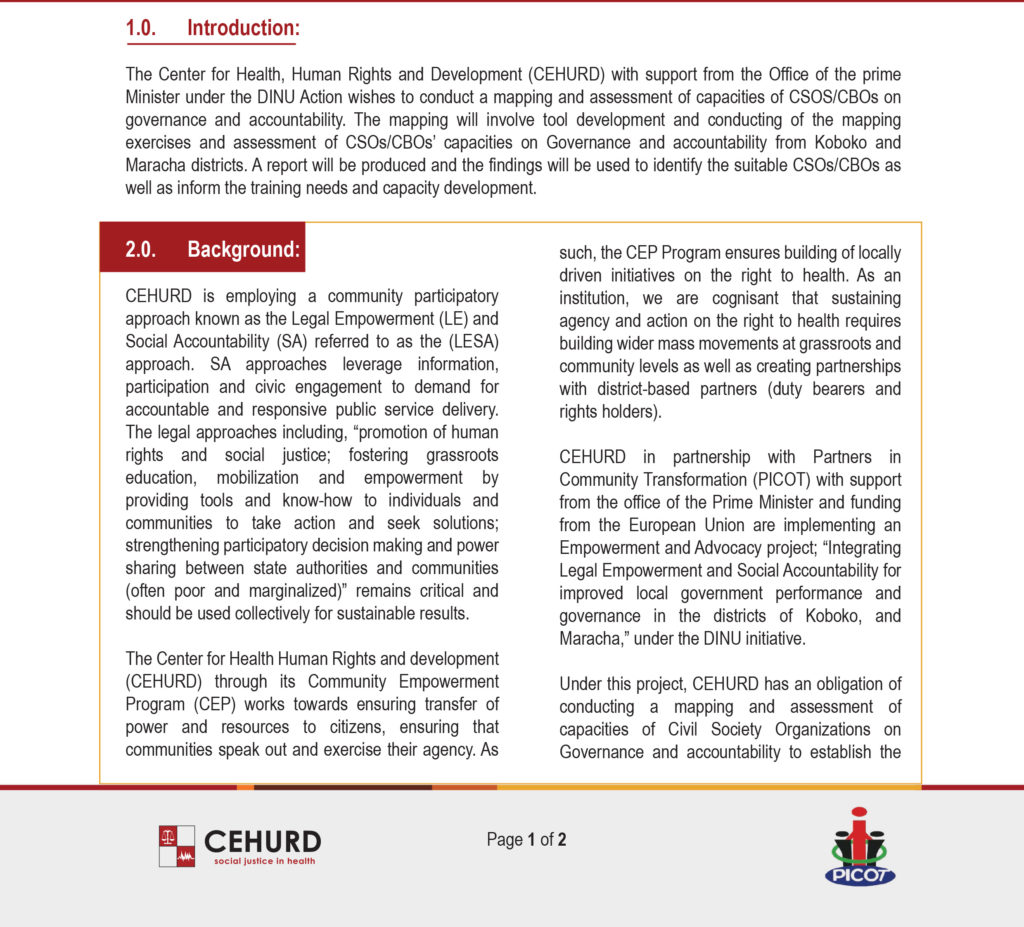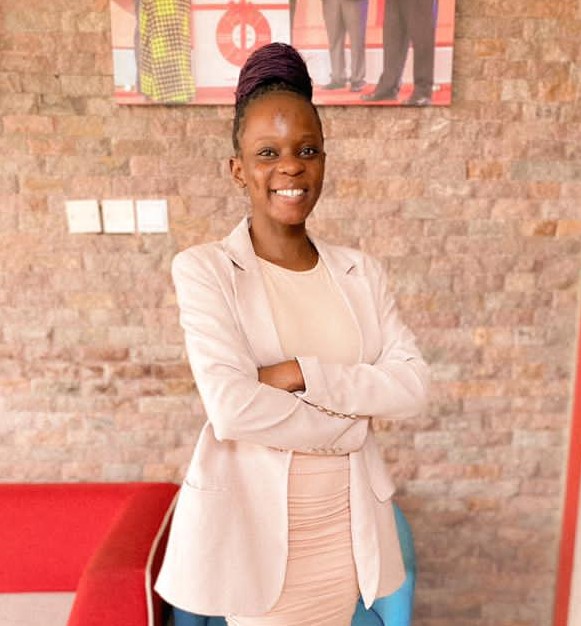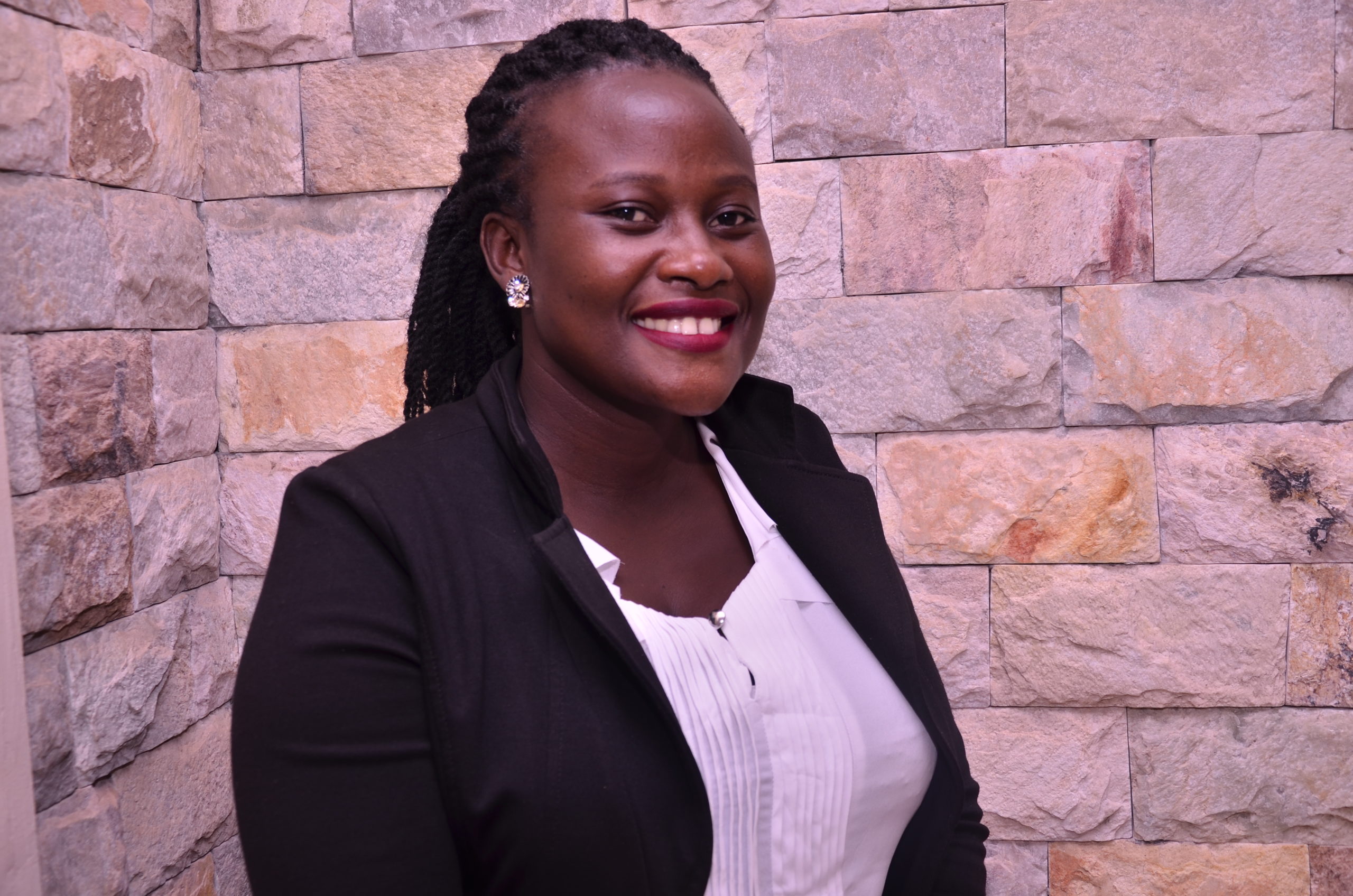



Smoking is the leading risk factor for lung cancer. There is still a long way to go for us to start harvesting the fruits of the Tobacco Control Act, 2015. Massive sensitization still needs to be done.
Compiled by Syndia Chemutai
Since its inception in 2012, World Lung Cancer Day has been observed every August 1 with the aim of shining a light on this deadly disease and giving hope to those who are battling it. According to the latest WHO data published in 2018 Lung Cancer Deaths in Uganda reached 439 or 0.17% of total deaths and Uganda ranks at number 150 in the world.
Smoking is the leading risk factor for lung cancer. Research from the American Cancer Society has it that about 80% of lung cancer deaths result from smoking and according to Tobacco Induced Diseases (TIB), 62.2 % of daily smokers used manufactured cigarettes. There is a high prevalence of tobacco use in Uganda with almost 1 in every 10 Ugandans using tobacco products daily. Statistics from the Uganda Cancer Institute also indicate that 25 % of lung cancer patients were tobacco users.
Globally, tobacco kills nearly 6million people worldwide including 600,000 non smokers exposed to second hand smoke. Uganda ratified the WHO Framework Convention on Tobacco Control (WHO FCTC) in 2007. The Convention was negotiated as a Global Intervention to protect present and future generations from the devastating health, environmental and socio-economic effects of tobacco. One of the steps in fighting Lung cancer besides investing in research and improving on health infrastructure to treat Lung cancer is regulating the causes and tobacco use is one of them. It is linked to 71% of lung cancer cases.
Uganda passed the Tobacco control Act 2015 and the Tobacco Control Regulations 2019 aimed at controlling the demand for the consumption of tobacco and its products and in the long run, promote the health of persons and reduce tobacco related illnesses and deaths. The law bans smoking in all indoor places and workplaces, on all means of public transport, and in specified outdoor public places, it also bans all tobacco advertising, promotion, and sponsorship, including product displays at points of sale. It prohibits the sale of tobacco products in specified places (health institutions, schools, prisons, and other places), among others.
I commend the government upon taking the initiative as there is an impact created by the Tobacco control Act for instance non-advertisement and promotion of tobacco has been achieved. There are however instances where the provisions have not been upheld, shisha, smokeless, and flavoured tobacco are still being consumed and people can still be seen smoking on the streets and nothing is done about it. Albeit the promulgation of the laws, their enforcement and sensitization of the masses about them should be accelerated. There is no benefit of having good laws only on paper with little or no impact at all on ground.
There is still a long way to go for us to start harvesting the fruits of the Tobacco Control Act, 2015. Massive sensitization about it should be done, and enforcement of the same should be felt because much of the population is not aware of its existence, some still ignorantly break the laws and since they are not held accountable, they get away with it but the harm is already done. Incentives should also be given to tobacco farmers so they can channel their energies elsewhere, you cannot block their source of livelihood without giving them an option, they should also be clearly educated about the harm that they are causing the world by embarking on tobacco farming. These among other measures can go a long way in the fight against lung cancer.
The writer is an Intern in the Strategic litigation programme at the Center for Health, Human Rights and Development (CEHURD).

”This time I waited for the results with a little bit of excitement because I was sure they would be in my favour. But alas! they still came back positive. At this point I wondered what I was not doing right.”
By Mariana Kayaga
Before I got the COVID test (yes, that irritating nasal swab), I was really fine but as soon as our Human Resources Manager asked me to get a COVID test, fear overtook me, not because I was afraid of testing positive but because I had had a bad experience the last time I tested.
As soon as the test was finalised, my fears unfolded, I got a running nose and a very painful headache (the kind that hurts just above your eye).
On my way back from buying a handkerchief a friend called, saying she wasn’t fine and that she needed someone to talk to. When I left office I went straight to her place in Kisaasi and spent the night with her as we talked.
That Saturday morning at around 12pm, I received a call from the Human Resources Manager
HR: Hello Mariana, how are you?
Me : I’m fine, how are you?
HR : Munange the test came back positive.
Me : Thank you. Have a great weekend.
HR : If you need any help don’t hesitate to call me.
At that moment my friend and l were still in bed and I told her my result. Her response wasn’t what I expected because of the stigma that comes with having a positive Covid results. She instead requested me to stay at her place,saying she would look after me.
I later called my mum, broke the news and told her where I would be spending the rest of my week. I also called my Manager to inform him about the results and that I wouldn’t be able to go to the office. I can only imagine how he felt given the fact that my seat is next to his.
This COVID thing hits different. After being home for more than three weeks, treating an illness that almost got me stuck to a wheelchair, my anxiety was off the roof.
The first seven days were the pits with chest pain, a constant headache, terrible flu and a burning sensation in my throat…Ugh! I did some steaming with plain water in a bucket at least twice a day and that went along with some concoctions which included lemon, ginger, garlic and raw pepper. I still wonder why I was adding pepper to the mix because it only fuelled the burning sensation and made my nose run even more.
On top of the random fevers, running nose and headaches, I lost my sense of taste and smell. For some time, I felt like a non-living thing! I could see food but I could not taste or smell it and the top tier was that I was always hungry.
In my mind I knew things had gone bad and that was the worst feeling I have ever had. I later returned to my place and was by myself with no one to talk to apart from following / engaging in online conversations. It felt really terrible and sometimes I would find myself crying hysterically. The thought of my lungs failing me on one random morning and ending up on a life support machine made my stomach hurt, given the gaps in Uganda’s health care system. I was extremely worried with thoughts of ‘’what if I don’t make it?’’, ‘’what if I get to hospital and it’s crowded without a bed for me?’’ as tears rolled down my cheeks.
Meanwhile, I took COVID tests hoping for negative results, looking forward to days free from the steaming which had even bruised my fingers.
The results still came back positive. Whenever the HR Manager gave me the results, I could hear the worry in her voice.To allay her worries, I always told her I would be fine. During the call she advised that I go get a second opinion and later buy more vitamins (vitamin D3, E, C) and Zinc to boost my immunity.
I went for another test at Norvik Hospital and of course paid Shs 200,000 but again the result came back positive. To say that I felt terrible when the doctor broke the news is an understatement.
While I was struggling with all the other symptoms that came with COVID, Azithromycin gave me an extremely painful stomach ache and the only consolation I had was that it was a three days’ dose, so I hung in there.
After seven days of taking vitamins, I regained my taste buds but couldn’t smell a thing. I went for another test. At this moment, I was desperate for a negative result! This time I waited for the results with a little bit of excitement because I was sure they would be in my favour. But alas! they still came back positive. At this point I wondered what I was not doing right.
In all this, my father never got tired of calling and checking no my progress. When my mother called and I told her the same results, she decided to send me fruits everyday, saying “Kilabika wetaga bibala” (it seems you need fruits). She sent the fruits till I got a negative result, seven days later.
The truth is COVID treats everyone differently, some people don’t even notice that they have it (asymptotic), others battle it silently like I did and others get unto life support but we can all get through this.
My prayer is that we all follow the Ministry of Health guidelines and stay safe. Let us not wait for the people we know to drop dead before we take COVID seriously. If you get it, stay positive and believe you can beat it no matter how frustrating it feels in the moment.
Ms Kayaga is a Programme Officer in the Community Empowerment Programme.

Because being a warrior isn’t just about the shape of our blood cells, it’s about the passionate, fighting spirit God has bestowed upon us
by jORDAN TUMWESIGYE
As a child I was friends with a boy who was seemingly ill all the time. I have never forgotten his sullen temperament or his sunken dead eyes especially on days he was in pain. I never understood what ailment he suffered mainly because I was a child. My friend suddenly passed on before his ninth birthday and upon my incessant inquiries I was told that he had lost the battle to sickle cell anaemia.
My friend was born in a family of four- three boys and a girl. Two of the boys were sicklers while the rest, as I understood later, were carriers. I learnt later that the remaining sickler had since succumbed to the disease at the ripe age of fifteen. This experience opened me up to the devastating effect of the disease.
Sickle cells disease is a severe genetic blood disorder which affects people who inherit genes that cause abnormal haemoglobin. In Uganda, Ministry of Health estimates point to the fact that at least 20,000 babies are born with sickle cells disease and about 80% die before they turn five.
19th June is celebrated worldwide as international sickle cell day in a bid to raise awareness about the disease. This follows a 2008 United Nations General Assembly resolution that recognised sickle cells as one of the world’s foremost genetic diseases.
This year as we mark yet another international sickle cell day, it is crucial that more awareness around the disease is created. The disease represents a public health concern but the lack of consciousness about the same can only further frustrate efforts aimed at preventing the disease. While, there is a lot of fear attached to the alarming mortality rates of the disease, by 2002, the oldest patient known to the sickle cell clinic at Mulago National Referral Hospital was aged seventy-three.
Secondly, it is crucial for government to further accelerate efforts aimed at controlling malaria. Research indicates that falciparum malaria is a leading cause for mortality and morbidity among sickle cells disease patients. While Ministry of Health approved the use of Hydroxyurea for sickle cells patients following a study called Novel Use of Hydroxyurea in an African Region with Malaria (NOHARM), it is important to prioritise malaria control programmes such as calling for sleeping under insecticidal mosquito nets.
Thirdly, blood transfusion is an effective treatment option for some severe complications arising out of sickle cell disease. It is therefore important that government continues to prioritise budgetary allocations to the Uganda Blood Transfusion Services to enable patients who require access to blood transfusion any fighting chance.
Most importantly, screening for sickle cells disease should be prioritised especially for persons intending to marry just like it is for sexually transmitted diseases like HIV/AIDS. Again, this can only be achieved through massive awareness programmes on the disease. Massive awareness cannot be considered effective unless community participation and involvement in its truest sense is carried out.
On a day like this, it should not be enough to remember people who have passed on from this deadly disease. It should not be enough to recall the devastating effect the disease had on them. It should be that we reflect on ways we can reduce mortality and morbidity associated with the disease.
The writer is a programme officer at the Center for Health, Human Rights and Development (CEHURD).

“When COVID-19 came in, as the older child at home I had to go with my mother to wash clothes and fetch water for people to earn money since school had stopped and there was not enough food and essential commodities at home. At this time I don’t think I can go back to school because I have to look for money to cater for my siblings’ education,” Seventeen-year-old Jane narrates.
By Edith Sifuna
At the beginning of 2020, World Health Organization (WHO) confirmed COVID-19 a public health emergency of international concern and has since caused widespread fears and strains on different systems worldwide. Different guidelines and directives have been put up by different countries, Uganda inclusive, to curb down its spread and as such have affected many systems, children’s rights and welfare being the most affected.
The pandemic has had a profound impact on Children’s rights, majorly their right to an adequate standard of living, right to protection from child labor and right to education among others. This health crisis has aggravated many of the main social and economic catalysts of children’s rights abuse such as limited access to education, early pregnancies, child marriages and poverty.
This means, as we celebrate this year’s Day of the African Child under the theme, “30 years after the adoption of the Charter accelerate the implementation of Agenda 2040 for an Africa fit for Children”, as economies are shutting down and stay-at-home orders are becoming the new normal, the Government of Uganda needs to come up with strategies to address the unspoken damages caused by the COVID-19 pandemic to children’s rights.
The pandemic has disrupted access to reproductive health services and information hence exposing many girls to unwanted pregnancies during the lockdown. Most young people have had sexual encounters either consensual or non-consensual, and due to their inability to access reproductive health services, they have ended up pregnant exposing them to dangers of early marriages and other birth complications such as fistula, unsafe abortions and or death.
It is expected that 13 million more child marriages could take place by 2030 which would have otherwise been managed. Child marriages are not only a violation of girls’ human rights and their rights as children, but are also characterized by sexual gender-based violence from their partners. The pandemic has disrupted all efforts intended to end child marriages and this calls for Government’s intervention to implement and strengthen effective child-friendly national legislative, policy and institutional frameworks addressing such challenges as per Agenda 2040.
The economic pressure has caused such a huge economic burden for a country like Uganda, most vulnerable communities/ families have resorted to forcing their girls who are pregnant into marriage due to income constraints, perceiving them as financial burdens rather than children with a future to realize and rights to uphold and protect.
Furthermore, the closure of schools/learning institutions due to COVID-19 pandemic has greatly interjected the education for many children, especially the girl child. Many of them will not be able to return to school as a result of increasing pressure to work and meet individual or family needs, let alone stigma for pregnant girls/ young mothers attending school, while others have lost contact with the education system, especially those from vulnerable communities with no option of distance/ e-learning.
When President Yoweri Museveni ordered schools closed on March 18, 2020, this further contributed to an increase in child labour. The pandemic resulted into a massive closure and unprecedented loss of jobs and loss of income in many families introducing many children to the workforce characterized by hazardous and exploitative conditions for survival. Although the Government of Uganda came up with a strategy to distribute food items, most families did not receive any COVID-19 relief and those who received it, it did not sustain them for long. According to the International Labour Organization, the number of children in child labour decreased by approximately 94 million between 2000 and 2016, representing a drop of 38 per cent. A rise in child labour was therefore an inevitable consequence of the pandemic as children become primary bread winners for their families after losing a care giver or their care giver losing a source of income.
We therefore call upon Government and duty bearers to prioritize children’s rights by protecting them against any challenges that have come with the COVID-19 pandemic such as sexual exploitation and abuse including inducement, coercion or encouragement to engage in sexual activities and customary/ cultural practices that are harmful to their wellbeing, health, education and socio-economic development.
Measures to mitigate the effects of the COVID-19 pandemic should be put in place such as increasing chances for pupils to stay in school and access to health related information on reproductive health and rights. Keeping girls out of child/early marriages will boost the country’s/communities economic growth saving them on resources and pressure on the health sector that would otherwise be used to manage the effects of early pregnancies such as maternal and infant mortality.
It is therefore important that the Government of Uganda implements Agenda 2040 whose main objective is to restore the dignity of the African child and establish long-term strategies that will contribute towards sustaining and protecting children’s rights in Africa. This is strongly emphasized in aspiration 2, 6, 7 and 9 of the Agenda 2040 where; Governments need to put in place effective child-friendly national legislative, policy and institutional frameworks; ensure that every child fully benefits from quality education; that every child is protected against violence, exploitation, neglect and abuse; and that every child is free from the impact of armed conflicts and other disasters or emergency situations respectively.
Ms Sifuna is a Programme Officer in the Campaigns, Partnerships and Networks programme at CEHURD.